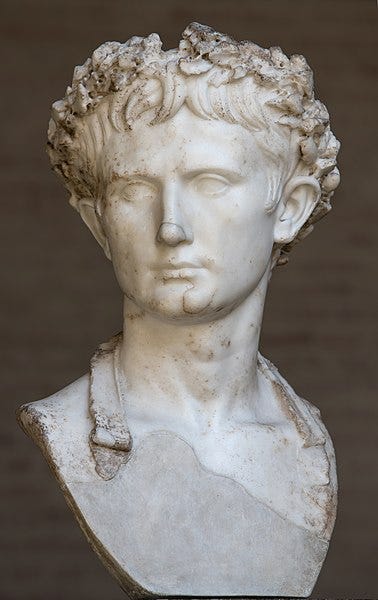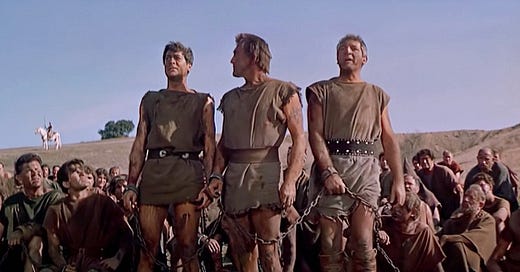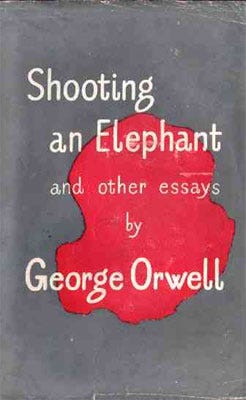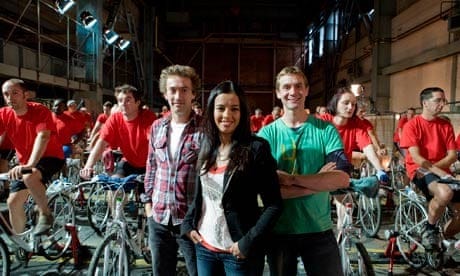This essay is a thought piece about the energy crisis and is based on the work of the influential social critic Ivan Illich and my own opinions. Please feel free to comment; I’d love your feedback.
My favorite film scene is from Stanley Kubrick’s 1960 MGM Hollywood sword-and-sandals epic ‘Spartacus’ starring Kirk Douglas which is about the Servile Revolt in the Roman Empire of 71 BC. In this the Roman general asks the defeated slave army who is their leader; Kirk Douglas steps forward, only to have all his friends do exactly the same in a chorus of ‘I am Spartacus’.1
Of course it’s a historic fiction, there’s no record of what happened to the real Spartacus, and the scene nearly didn’t make it into the film at all; Kirk Douglas overruled Stanley Kubrick to include it2. But the Roman Servile Revolt was real, and I think there are still lessons to be had from it about the role of slaves in both the Roman Empire and today. I’ve also recently been watching the wonderful Oxford don Mary Beard on her hugely entertaining BBC series about the Roman Empire3. She skips around archaeological sites in it with undisguised glee bringing the Romans and their world to life. She talks about how much of Roman life was underpinned by slavery, the human dynamos who tilled their fields, rowed their galleys, cooked their meals and brought up their children (there was even a slave called a numenclator whose job it was to accompany their masters on their daily walks and discreetly whisper the names of the friends they met enroute whose names they had forgotten, a sort of social secretary/proto Alexa4).
Slavery permeated Roman society in myriad ways5, up to 20% of the total population of the Roman Empire at its peak were slaves. In addition to slaves providing the muscle power of agriculture, trade and construction, slavery also structured the social relations between elite Roman men. A typical Roman greeting was ‘Quot pascit servos?’ which means ‘how many mouths do you feed?’ In other words, how many slaves do you have? This established a pecking order straight away, the more mouths you fed, the more important you are. It would be like today two men eyeing up each other’s cars on their first meeting to establish who is the more successful/important in life. The fewer slaves you could muster the less important you were, one Roman who turned up for a trial with only a couple of slaves in tow was mocked, much as if he had turned up at a car rally driving a Reliant Robin.6
Legally Roman slaves were objects, not people and unlike the chattel slavery of the American South there was no easy way of identifying them in public, as the Romans did not discriminate on the grounds of skin color or ethnicity. Nor could they be identified by education or the way they spoke as many slaves were war captives, thus could be highly educated, skilled or nobly born. This must have resulted in some awkward social situations for the elite, when ‘quelle horreur!’ they mistook a slave for one of their own. That this happened frequently enough to make it a problem is evidenced by one proposal to have slaves dress differently for identification purposes, until the philosopher Seneca sensibly pointed out that meant that this might mean the slaves could see how numerous they were in comparison to their masters and thus revolt7.
Despite this proposal being quashed, slave revolts did happen, including the one immortalised in the Spartacus but they all ended in failure and those who participated in them were subjected to Rome’s ultimate sanction, crucifixion, the most humiliating lingering public death possible. No Roman citizen could be crucified, this was a death reserved only for slaves and criminals. After their defeat the Roman general Crassacus crucified 6,000 from Spartacus’s army, lining the main road to Rome, the Appian Way with crosses and leaving the rotting bodies of the victims on show for years in a grisly public warning to others thinking of trying anything similar8.
On the face of it, elite Roman society had an enviable quality of life, cheap food and clothes, grand public architecture and time devoted to the life of the mind which yielded much great literature. However, as Mary points out in her series, the Romans lived their lives uneasily aware that the human engines who surrounded them could turn on them at any moment, and masters were murdered by their slaves. For the more sensitive Romans, the emotional labor and suppressed guilt of constantly ignoring or justifying the physical and psychological suffering that slavery entailed was another hidden cost; many slaves toiled away away from public view in tunnels or hidden spaces so that the elite did not have see or think about this too often.
But even those who cared little about the welfare of their slaves (which as Mary points out was most Romans) there was another cost, getting other people to do your work eventually means that you become reliant on them and finally unable to do what you used to be able to do for yourself. Thus slavery as an institution had a corrupting and dehumanising effect, not just on the enslaved people themselves who often endured unimaginable cruelty, but was psychologically damaging on the elites who depended on them as well, trapping both sides in an unhealthy codependency (a very similar dynamic was observed by George Orwell in the story of his time in Burma as a policeman: How to Shoot an Elephant where he observed that the coloniser is at much a prisoner of his role as those who he colonises9).
We don’t have slavery anymore, or at least we in the Global North (the former colonisers of the world such as the UK and the US) no longer publicly buy and sell human beings (although as Mary points out that much of the ease of modern life is actually based on invisible slave labor on the end of global supply chains in the Global South, from the sweatshops of the clothing factories in India and Pakistan to the child laborers of Bolivian mines). But in the Global North from the 19th century we have replaced the muscle power of human slaves with fossil fuels, like coal and oil the ‘ancient sunlight’10 which has been the Viagra of our modern industrial civilisation for the last 300 years11. These have enabled us via the intervention of technology like motors and electricity to maintain a lifestyle that the average Roman citizen might envy (although it is interesting that many machines and computers retain the Master/Slave nomeclature12).
As a former engineer I was really interested in the 2009 BBC TV program ‘Bang Goes The Theory’ 13where they constructed a mock normal household equipped with all the usual electrical devices, lights, showers, ovens etc and got a family of four to inhabit it for a single day; but the kicker was that this house was disconnected from the grid and powered only by a warehouse of 80 human cyclists pedalling non stop: the Human Power Station of the program’s title. The family used the house for a full day, completely unaware of the sweating and increasingly exhausted cyclists in the background keeping up the varying energy demands by devices like ovens and hoovers. It was a jaw dropping revelation, even to those like me who know theoretically how much power these devices require, to see the enormous levels of human energy that was required to run a typical household with what would be considered fairly modest energy requirements. And this was in 2009, these energy requirements have only gone up since.
The average Roman citizens’ lifestyle probably depended directly on at least one or two slaves (discounting those working on the land to provide cheap food) whereas today’s average UK citizen depends on 14 140 energy slaves equivalents and rising as we introduce new devices into our lives. This is in spite of the fact that the energy efficiency of many of these devices has improved (this could be down to a phenomenon I discussed in my last essay, Jevon’s paradox, where increased efficiency can lead to an increase rather than a decrease in energy consumption).
Well, so what you might ask? No one would carry on switching on lights or ovens if it depended on a visible warehouse of human beings pedalling furiously every day; most of us couldn’t live with the guilt. But fossil fuels don’t have feelings and the wind blows and the sun shines regardless, so energy harvesting from them is victimless? But both fossil fuels and renewables rely on the continued exploitation of the natural world, from the atmospheric pollution of carbon based fuels to the deep scars gouged out from the Earth to supply the minerals from which the wind turbines and solar panels are made, wrecking environments mainly in the Global South, displacing indigeous people and animals in the process15. Our modern lifestyles are been based on ignoring the physical costs to the non human world, much of it in the Global South, just as most Romans ignored the ways their slaves were exploited by hiding them away from public view.16

But even setting aside the destruction to the natural world which will be involved in the transition to Net Zero (although as discussed in previous essay many engineers privately believe this is increasingly unrealistic) what if, in a thought experiment we were whisked away to a planet with infinite resources which we could merrily dig and consume to our heart’s content without any consequences (as Elon Musk appears to believe exists on Mars) that would be fine, wouldn’t it? We could stop this whingeing about the environment and the natural world and get on with consuming and growing to our heart’s content, couldn’t we? (and Elon, don’t let the door hit you on the way out).

That brings me to the other issues raised by Mary in her series, the corrupting effects of slavery on the whole network of social relations in Rome and on the Romans themselves. She points that that even the man with the resources of 20,000 slaves at his disposal, the Emperor himself, was often a thoroughly miserable individual beset by paranoia (often with very good reason, many Emperors were murdered). Rome was a society riven by fear, where even those who seemed to benefit most from the system didn’t live happy lives.
Slavery in my view isn’t just bad for the planet, or for the slaves whether human or otherwise, it’s bad for the whole society that uses it. Since I am including both human and energy slaves in this, it may be as well at this point to nail down what I am defining as slavery since there is no universal definition of the word. The Encycopedia Britanica defines slavery thus17:
slavery, condition in which one human being was owned by another. A slave was considered by law as property, or chattel, and was deprived of most of the rights ordinarily held by free persons.
but the term ‘energy slaves’ was coined by the American inventor Buckminster Fuller in the 1970s to describe the work done by fossil fuel equivalents of a human based where an:18
“energy-slave,” based on the average output of a hard-working man doing 150,000 foot-pounds of work per day and working 250 days per year

What human and energy energy slaves have in common is that they are both sources of exosomantic energy (coming from outside an individual’s own body) and thus allowing this person to consume more energy than they otherwise would be able to without these sources. Perhaps what’s needed then is a new definition of slavery which encompasses both human and non human sources of energy, and I tentatively suggest it might go something like this: slavery exists in a situation where egregious energy harvesting from external sources permits an individual or institution to indulge in irresponsible energy consumption. This defines slavery as a process, rather than to isolate it in an individual context (and as I’m writing this I’m uneasily aware of the parallels with addiction).
How would this definition work on a day to day basis? For example, without the work done by the miners in the Global South to mine the minerals for this laptop, and the workers in the factory who made it, all long the global supply chains with a mix of human and energy slaves, I could not type these words on this laptop and thus am expending energy which I have not obtained ethically or sustainably. But although slavery has been involved at individual parts of the supply chain (and I feel guilty about this) I am taking some care to make sure that this external energy is being put to what I hope is productive uses and not waste it nor to expend it unnecessarily so I do not believe that I am participating in slavery. But this is not an easy judgement, who gets to decide what is egregious or irresponsible?
This is an idiosyncratic definition and there is lots of room for debate, but this means in a society built on slavery where unthinking energy harvesting leads to unchecked consumption, the ultimate goal for every human alive is that we should all aspire to live as the Roman Emperors did, without limits to our desires nor our consumption. So the influencers of Instagram posting online about their lavish lifestyles are merely taking this logic to its conclusion.
None of these are original thoughts, and are articulated much better than I ever could in the first chapter of the 1974 book Energy and Equity, written in the wake of the 1973 oil crisis, by the Austrian born former priest and philosopher Ivan Illich (which I highly recommend reading in full).
In this he observes:
Even if nonpolluting power were feasible and abundant, the use of energy on a massive scale acts on society like a drug that is physically harmless but psychically enslaving. A community can choose between Methadone and "cold turkey"-between maintaining its addiction to alien energy and kicking it in painful cramps-but no society can have a population that is hooked on progressively larger numbers of energy slaves and whose members are also autonomously active.
Illich also asutely observed that:
Both [rich and poor societies] must reject the fatal image of man the slaveholder currently promoted by an ideologically stimulated hunger for more energy
He also observes that at a certain point, high energy societies require the creation of a new technocracy to administer the new energy tools and the creation of vested interests who wish to both maintain unsustainable energy usage and encouraging growth of tools which become less and less efficacious the more widely they are used. A prime example of this would be cheap petrol for car use, its initial introduction was liberating for a few rich people, but its widespread implementation meant the creation of an automotive industry dedicated to its promotion, regulatory bodies to manage car ownership and use and the societal impacts of traffic jams and pollution.
Illich also compares the adverse effects of cheap food leading to obesity and ill health with the effects of cheap energy saying:
A people can be just as dangerously overpowered by the wattage of its tools as by the caloric content of its foods.
So does this mean that Illich was opposed to all technology and the use of all energy sources, however benign like wind power? Should we all go back to living in caves and stifle the human creativity and ingenuity which has brought us all so many benefits like modern medicine and the freedom to live from poverty, hunger and disease?
This was not at all Illich’s position (nor is it mine) instead what he sought to do was to reembed technology back into social relations and evaluate what contribution it could make to human flourishing. It is unlimited energy harvesting and thoughtless consumption he opposes, not technology. So are there any ways that we can try and maintain a modern lifestyle without trashing the planet? How can we unyoke our need for more and more ‘energy slaves’ from our wish to live a good and satisfying life? I cannot pretend there are any easy answers. But for a start, we could start by distinguishing what we need, from what we want. As Illich also says the modern consumer lifestyle is based on an endless stoking of desire by the global advertising industry, and:
The myth of unending consumption has taken the place of the belief in life everlasting.
So does artificially induced demand for items like airfriers in mass consumption events like Black Friday, mean that there are no safe uses for technology? Not necessarily, Illich talks in his other book Tools for Conviviality about technology which enables human flourishing, for example the telephone to facilitate communications between family networks or open source computer code. He was also in favor of mass public transport and bicycles instead of promoting individual car use.1920.
Another modern example of a ‘tool for conviviality‘ might be the implementation of a microgrid on the Island of Eigg, where modern technology like wind turbines and hydropower are used to enable a sustainable lifestyle for the islanders and which is firmly embedded in the social fabric of the community, as it is owned and maintained by the islanders themselves which I spoke about in my last essay. This may sound like an advertisement for socialism, but Illich explicitly does not tie this to any political system, in fact he says:21
A low-energy policy allows for a wide choice of life-styles and cultures. If, on the other hand, a society opts for high energy consumption, its social relations must be dictated by technocracy and will be equally degrading whether labeled capitalist or socialist.
For instance on Eigg the modest scale of the grid and the ability of the islanders to accept limits on their energy usage (they are allowed 5kV per household) gives them the ability to remain independent and to retain control of their future destinies. This has been made possible by embedding the technology, the wind turbines and the electricity network into a strong social network which is strengthened by the day-to-day involvement of the residents in network maintenance and energy surveillance. This means that the network is used as a mindful tool for community flourishing, rather than as in most modern electricity usage where large swathes of consumers neither have any idea about how their energy needs are met, much as their Roman ancestors knew nothing of the toiling slaves who produced their food and built their houses.
Another example of a community who have retained a sceptical and mindful attitude to the introduction of technology are the Amish whose houses are powered by gas lights and who use horse drawn buggies22. However the Amish are not universally opposed to technology, one recent visitor was astonished to find young Amish zipping around on electric bikes and wondered how they squared this with their religious beliefs23. I am no expert on the Amish, but I understand they live according to the community rule known as the Ordung which forbids some forms of modern technology such as cars; but that this is not an absolute prohibition on all technology as they are prepared to incorporate those which pass a community test. Thus an Amish community may pilot a new technology such as electric bikes in a community and if after some time the societal impacts are judged to be positive then the technology is retained and adopted by the community, usually under some pre agreed limits24.
This is in contrast to the rest of society where the introduction of powerful new technologies such as social media occurs without any prior assessment of the potential risks and dangers. Anyone who questions this narrative is labelled a Luddite (a much maligned group in my opinion)25. There is also in my view an artifical siloing between technology and the rest of society; in universities for instance there is little overlap between science and the humanities. Powerful and potential destructive technologies such as social media have been introduced in our society without any consideration of how their benefits might be safely balanced with their risks. This has lead not just to environmental disaster, but also the mental health crisis which besets many young people.
Now the climate is changing and the stable environment that Homo Sapiens has thrived in for millenia may not be with us for much longer. Furthermore this has coincided with increasing levels of mental distress fuelled by disruptive technologies such as social media. We may have more power at our fingertips than the average Roman citizen, but we are becoming as miserable as the Roman Emperors were. And if we continue down the road of believing that the hammer of technology will nail down the problem of climate change, we might find instead that we are playing Whack-a-Mole with other problems popping up to replace it.
Like the Romans and their uneasy relationship with their slaves, I believe that we are now as much a slave to our technologies as they are a slave to us and thus we might need to rethink what technology is for, and how it can best serve us rather than the other way around. The introduction of huge new energy sources like renewables into a society which has not considered this properly might just make these problems worse, as we could use these to fuel new planet wrecking methods of consumption such as AI, rather than fixing the original problem. It could be like trying to cure an alcoholic by giving them the keys to a pub.
In the meantime, who is Spartacus today? I am….
https://www.bbc.co.uk/news/entertainment-arts-51398165, there is a suggestion that the ‘I am Spartacus’ was a coded protest against the blacklisting of Hollywood screen writers during the McCarthy era as the screen writer Dalton Trumbo had previously been banned due to supposed communist sympathies.
https://faroutmagazine.co.uk/spartacus-scene-stanley-kubrick-hated/
https://www.bbc.co.uk/iplayer/episode/m001y5k2/meet-the-roman-emperor-with-mary-beard
https://www.historyextra.com/period/roman/slavery-ancient-rome-life-society-jobs-freedom/
https://historycooperative.org/roman-slaves/
https://historycooperative.org/roman-slaves/
https://www.pbs.org/empires/romans/empire/slaves_freemen.html
https://www.worldhistory.org/article/871/the-spartacus-revolt/
https://www.orwellfoundation.com/the-orwell-foundation/orwell/essays-and-other-works/shooting-an-elephant/
https://www.cambridge.org/core/books/abs/geofuels/light-of-an-ancient-sun-fossil-fuel-origins/B0FE4686B5AC81B4E3C967CD608E0D33
https://mahb.stanford.edu/blog/pete-myers-past-future-buckminster-fullers-energy-slaves/
https://en.wikipedia.org/wiki/Master%E2%80%93slave_(technology)
https://road.cc/content/news/11779-cyclists-power-family-home-bbc-show-highlight-energy-wastage
https://medium.com/@alysion42/energy-slaves-29c276da6d7f
https://www.transitionmineralscouncil.org/
https://www.academia.edu/9610135/Oxford_Handbook_of_Roman_Epigraphy_CH_28_Slaves_and_Freed_Slaves
https://www.britannica.com/topic/slavery-sociology
https://en.wikipedia.org/wiki/Energy_slave
For Illich the word ‘technology’ also encompassed large organisations such as governments or large organisations like the NHS which he believed functioned as large machines. Illich distrusted these large organisations believing that at a certain point scale mitigated against individual human wellbeing (anyone who has ever dealt with a large buracreatic organisation would find it hard to disagree with this analysis).
https://archive.org/details/illich-conviviality
Tools for Convivality, Ivan Illich, 1976
https://amishamerica.com/do-amish-use-technology/
https://thisebikelife.com/e-bikes-overtake-buggies-for-some-amis/
https://press.jhu.edu/books/title/10999/amish-and-technology
https://www.historic-uk.com/HistoryUK/HistoryofBritain/The-Luddites/

















Good to see someone bringing Illich's thinking to bear on our predicament.
Regarding "the corrupting effects of slavery on the whole network of social relations", if you've not read it, you might appreciate the recent book by Wendell Berry, The Need to Be Whole, which traces a similar line of thought on the corrupting effects of slavery on American society.
You may also be interested in the work of Neto Leao, a Brazilian scholar who has been following up on Illich's work, looking at examples of communities making collective decisions to limit their energy use:
https://www.equinoxpub.com/home/thinking-illich/
This is a thoughtful, well-researched piece, and a really helpful addition to my thinking! I read Naomi Klein's "No Logo" years ago while working through the Art of Manliness's 16 Essential Jeremiads (https://www.artofmanliness.com/living/reading/essential-jeremiads-16-cultural-critiques-every-man-should-read/), which first made me consider our society's reliance on "unseen slavery". More recently, I started musing whether affluence in any society is attainable without exploitation. Your piece has given eloquent voice to an expression of that thesis. Further, it has done so in far greater depth than I could have hoped to muster, and through a lens completely foreign to my perspective. Thank you for sharing this.